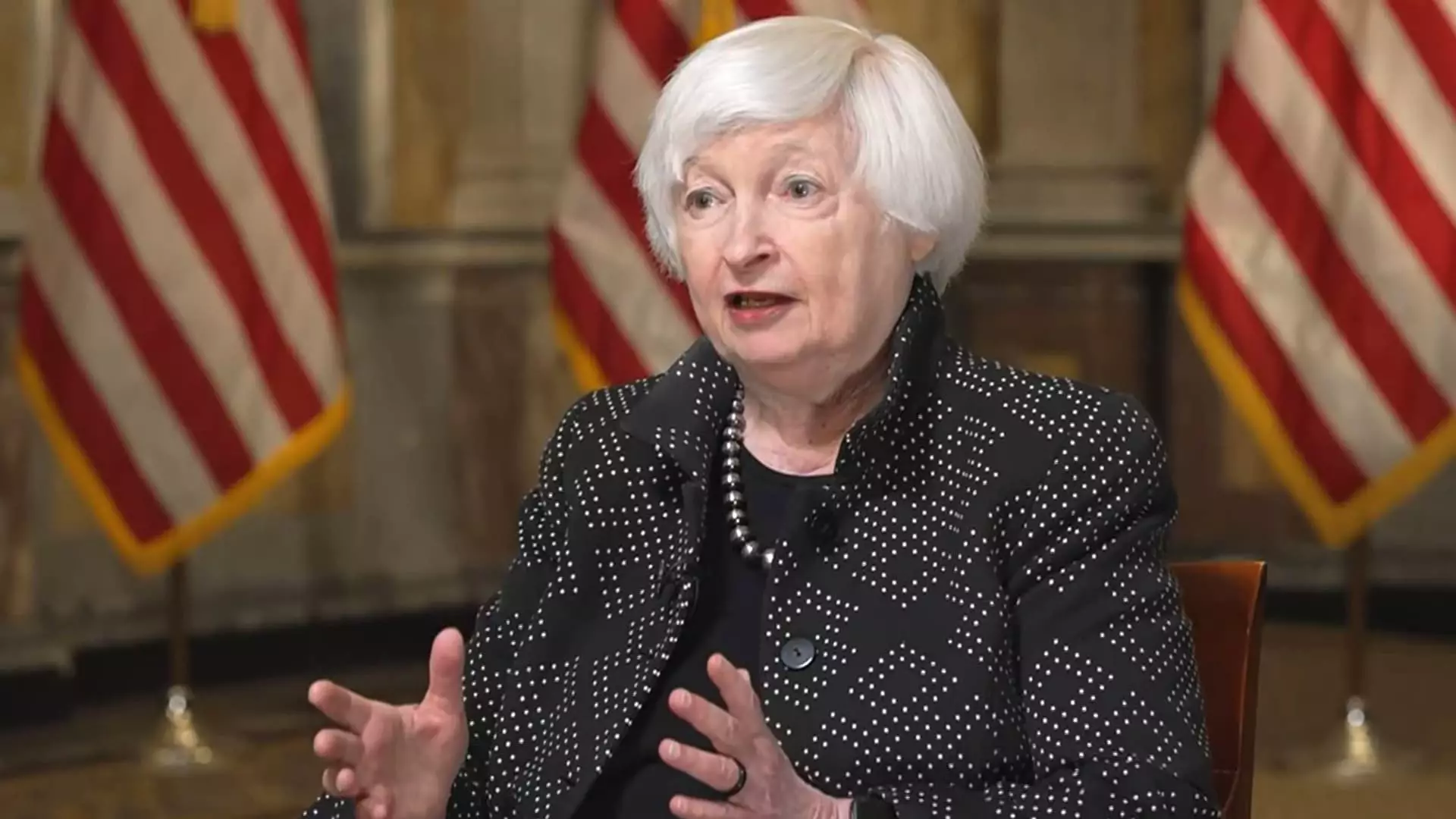In a recent interview, outgoing Treasury Secretary Janet Yellen reflected on the legacy of the stimulus spending enacted by President Joe Biden in response to the Covid-19 pandemic. Yellen acknowledged that while this relief package, amounting to $1.9 trillion, may have played a minor role in the inflationary pressures currently plaguing the U.S. economy, the root cause predominantly stems from supply chain disruptions catalyzed by the pandemic itself. This indicates a recognition of the broader economic dynamics at play, where external challenges, rather than solely fiscal policies, have contributed to inflation.
Yellen’s comments highlight the complexities of economic recovery amid crisis. The pandemic not only strained health systems but also disrupted global supply chains, leading to significant shortages of crucial goods. In her view, inflation is less a direct consequence of excess money supply and more an outcome of systemic vulnerabilities exposed during the crisis, emphasizing that economic challenges cannot be evaluated in isolation.
While speaking on the necessity of the Covid relief package, Yellen steadfastly defended the decision to implement such expansive measures, asserting that they were vital in alleviating the immediate suffering of Americans during a turbulent period. She remarked that the health crisis was dire when Biden assumed office, characterized by escalating mortality rates and high unemployment. By prioritizing immediate economic relief, the administration aimed to stabilize livelihoods, underscoring the ethical imperative of addressing human suffering even at a potential fiscal cost.
Yellen’s lack of direct regret about the stimulus spending speaks volumes about her belief in the broader responsibility of government in crisis. However, her remarks prompt broader inquiry: could the government have balanced immediate needs with longer-term inflation considerations? This ambiguity remains a point of contention among economists, suggesting a nuanced approach to balancing fiscal initiatives with their potential ramifications.
A significant point of discussion was the rising U.S. deficits, which reached an alarming $1.8 trillion last fiscal year. Yellen contended that the Biden administration has maintained a focus on deficit reduction despite soaring numbers, attributing part of the fiscal strain to rising interest rates, which increase the cost of servicing existing debt. This assertion invites scrutiny of the administration’s fiscal strategies and raises questions about the sustainability of current expenditure levels amid economic recovery.
Moreover, Yellen critiqued proposals for significant government spending cuts, especially those championed by advocates of efficiency, indicating skepticism about their feasibility. By emphasizing the support for mandatory spending programs like Social Security and Medicaid, she alluded to the political and social challenges of altering popular welfare programs, suggesting that any serious discussion about deficits must account for societal values and priorities.
A New Chapter Ahead
As Yellen prepares to hand over the reins to her successor, Scott Bessent, she expressed optimism in his extensive financial background, positing that it could serve him well in managing the complexities of the Treasury. This transition period marks a significant moment in U.S. fiscal policy, underscoring the importance of experienced leadership as the nation navigates the post-pandemic economic landscape. The enduring challenges of inflation, balancing deficit concerns, and promoting economic stability require adept management, making Bessent’s role critical in shaping the future of U.S. economic policy.
Yellen’s reflections encapsulate an intricate dialogue about the interplay of fiscal policy and economic realities, highlighting the need for careful analysis in the face of unprecedented challenges.

